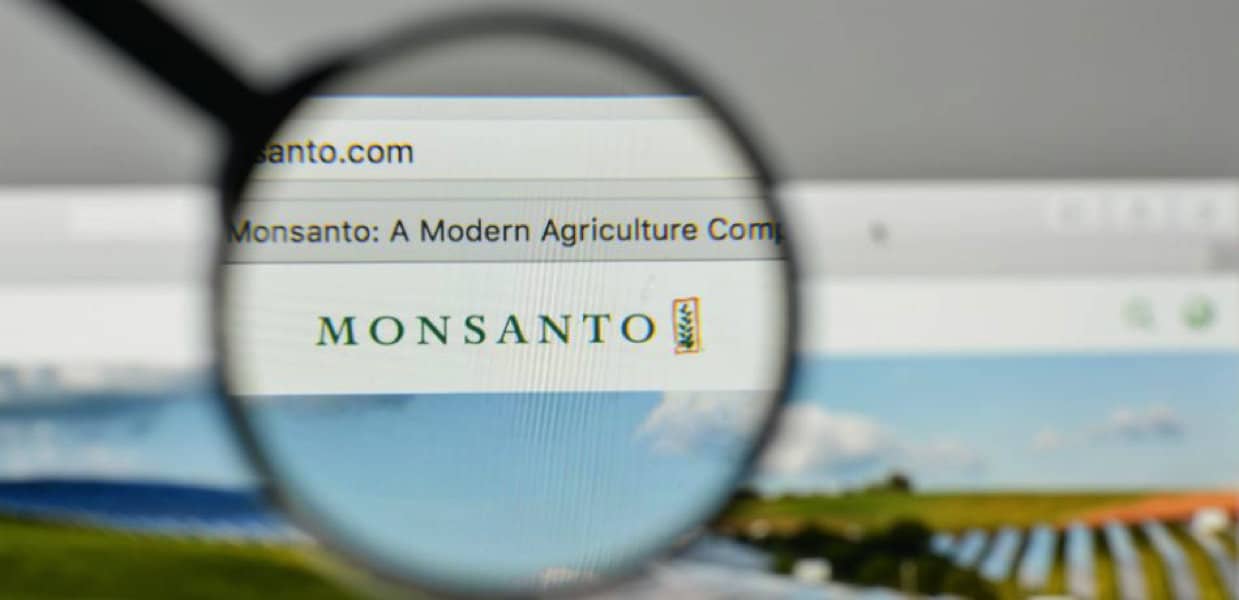
See our Roundup Trial Tracker for trial reporting.
Discovery documents
Read internal Monsanto documents As part of the discovery process during the litigation that preceded the settlement, Monsanto had to turn over millions of pages of its internal records. The Monsanto Papers and other court records are shared below, including documents regarding the company’s ghostwriting of an important paper published in the year 2000, and how the company used that “independent” scientific literature to promote and defend its herbicides.
Background
Three years after Germany’s Bayer AG bought Monsanto in 2018, Bayer set aside more than $16 billion to cover litigation liability associated with thousands of U.S. lawsuits alleging Monsanto’s glyphosate-based herbicides, such as Roundup, cause a type of cancer called non-Hodgkin lymphoma (NHL).
After losing three out of three trials in cases brought against Monsanto by cancer victims, Bayer said in June 2020 that it would pay more than $10 billion to settle roughly 100,000 of the claims. The proposed resolution came two years after Bayer bought Monsanto for $63 billion and one year after U.S. District Judge Vince Chhabria ordered Bayer/Monsanto to enter into mediation with plaintiffs’ attorneys. The settlement became mired in difficulties, and drew complaints from plaintiffs who said the individual amounts they’ve been offered are too little to constitute fair compensation. While many law firms have reached settlement agreements with Bayer, many others have not as of August 2021.
In late July 2021, Bayer said it would set aside another $4.5 billion to cover Roundup cancer claims. The company also said it would stop selling Roundup and other glyphosate-based herbicides to U.S. consumers by 2023, but would keep selling the products to commercial applicators and farmers.
Bayer also said that in addition to replacing its glyphosate-based products in the U.S. residential market with new formulations using alternative ingredients, it would explore changes to Roundup labeling.
“It is important for the company, our owners, and our customers that we move on and put the uncertainty and ambiguity related to the glyphosate litigation behind us,” Bayer CEO Werner Baumann said during a July 2021 investor call.
The company also said it would seek to have the U.S. Supreme Court review of one of its trial losses in hopes it would overturn the loss and preclude continued litigation. In the event of a “negative Supreme Court outcome,” Bayer said it would set up a claims’ administration program that will offer “pre-determined compensation values” to “eligible individuals” who used Roundup and developed non-Hodgkin lymphoma over the next 15 years.
More details
According to Bayer’s June 2020 announcement, the company was to pay $10.1 billion to $10.9 billion total to resolve roughly 75 percent of the claims by an estimated 125,000 people who allege exposure to Monsanto’s weed killers caused them to develop NHL. The deal includes plaintiffs who have retained attorneys with the intent to sue but whose cases have not yet been filed, Bayer said. A payment of $8.8 billion to $9.6 billion was earmarked to resolve the current litigation.
Bayer’s decision to settle the litigation followed three U.S. trials, one in federal court and two in state courts.
Federal trial details
The federal trial was the case of Edwin Hardeman V. Monsanto. That trial was bifurcated at the request of Monsanto, limiting evidence jurors heard during a first phase to causation only. On March 19, 2019 a unanimous jury decision handed a first-round victory to Hardeman, as the six jury members found that Hardeman’s exposure to Roundup was a “substantial factor” in causing his non-Hodgkin lymphoma. On March 27, 2019 the jury returned a verdict of approximately $80 million, including punitive damages of $75 million. Judge Chhabria reduced the punitive damages awarded Hardeman to $20 million from $75 million, putting the total award at $25,313,383.02. Court/discovery documents are posted below for Edwin Hardeman V. Monsanto.
Click here for additional documents pertaining to combined MDL cases
State court information
Thousands of plaintiffs have made similar claims against Monsanto in state courts.
The fourth Roundup cancer trial, Stephen v. Monsanto, got underway in August 2021.
The first trial in the Roundup litigation concluded on Aug. 10, 2018 with the jury ruling that Monsanto’s weedkiller was a substantial contributing factor in causing DeWayne “Lee” Johnson’s cancer, and ordering Monsanto to pay $289.25 million in damages, including $250 million in punitive damages. The judge reduced the punitive damages to $39 million in an order dated Oct. 22, 2018 which put the total verdict at approximately $78 million. Monsanto appealed, seeking to throw out the judgment, while Johnson cross appealed, seeking to reinstate the jury award. The California 1st District Court of Appeal sided with Johnson in finding there was ample evidence to prove his cancer was caused by exposure to Monsanto’s herbicides, but the court lowered his damage award to $20.5 million. Bayer paid Johnson in late 2020.
The third trial was Pilliod V. Monsanto. On May 13, 2019, jurors returned a verdict awarding Alva and Alberta Pilliod $2 billion in punitive damages and $55 million in compensatory damages. The judge in the case then cut the total verdict to $86.7 million. Pilliod v. Monsanto was the first case in the California Roundup Judicial Council Coordination Proceedings ( JCCP) and the third Roundup cancer case to proceed to trial. Monsanto appealed the verdict to the California 1st District Court of Appeal. The case number A158228. The Pilliods filed a cross-appeal. See details at this link.
Click here for additional documents pertaining to state court cases.

